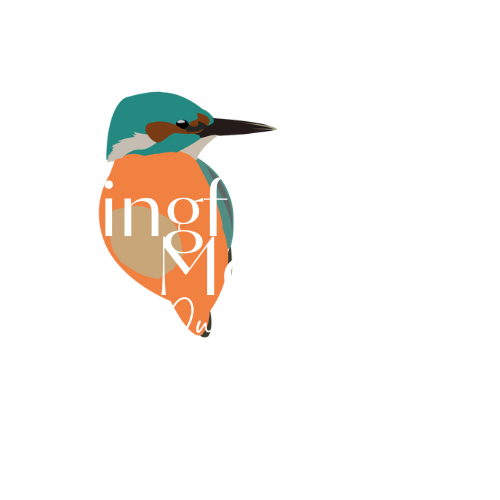Start in the middle. That’s what my speaking coach taught me.
And somewhere in the middle of January this year, I hit what I now call algorithmic rock bottom. That moment sent me down the path of trying to answer a question I believe more people are quietly asking than we realize:
How do you stay human in the age of AI?
This essay won’t give you a roadmap. It’ll give you something better: a mirror, a map, and a machete.
So I’m starting with the map.
The core insight is this: the old maps were made for a world that no longer exists. None of us is just a user of the new world anymore. We’re being asked to become cartographers. If you’re not mapping, you’re drifting, and that’s a tough realization.
Many of us were raised on faulty coordinates. The American Dream is one of the most persistent maps handed down through multiple generations, one I started questioning in the 90s when I was teaching a unit on Transcendentalism and referred to what I saw going on around me as the "American Nightmare." Since then, I've heard numerous people call it that.
Despite all that, the American Dream still gets held up like a lighthouse in the fog, but a lighthouse beam is useless if the captain has no clear sense of direction. That's where many people are now: adrift, disoriented, pulled by currents they don’t understand, steered by systems they didn’t design.
What we’re living in is a tension that’s been manufactured. And most people have bought in.
Without a clear map, it’s easy to find yourself on a loop that looks something like this. Wake up, grab the phone, doom scroll while knocking back a latte, wedge in some productivity hack from a podcast, try to survive the avalanche of other people’s agendas, rinse and repeat. We’ve normalized distraction. We’ve spiritualized burnout. The machine says, “Keep going.”
So we do.
Then there's the mirror.
Most people don’t want to look. I didn’t, either. We don’t like what’s staring back at us. We see the time we’ve lost, the things we’ve tolerated, the way we’ve allowed the algorithm to hijack our desires and reroute our attention. We see the scroll, the performative highlights, the decisions made out of fear, the numbing.
One morning over breakfast recently, my friend Alice asked me, “When did you have your epiphany about the algorithm?”
I said, “January.”
That was the moment I realized I had given fifteen years of my life to a system that gave very little in return. If you’ve ever hit rock bottom—in any form—you know what happens next. You either stay there, or you rise. And if you choose to rise, you figure out how.
That decision to rise comes from something ancient. Something not programmable.
People like Rich Roll, Brené Brown, Mel Robbins talk openly about this process. They each had to face their mirror and choose what kind of life to build from the rubble. So have I. That’s what my forthcoming book is about. That’s what this essay is about.
When you look in the mirror—really look—it will show you what you’ve become, what you’ve avoided, what you’ve surrendered. It will show you the Truth. Yes, with a capital “T.”
The machine doesn’t lie. It just reflects, until you stop looking through it and start looking into it. And looking into it means looking into yourself. That’s not cozy work. It’s raw and uncomfortable and real.
Now, back to the map.
We’re not just in a period of change. We’re in a collapse. Traditional career paths, attention spans, gatekeepers are crumbling. In their place, we’re being handed a new literacy: prompt engineering, digital selfhood, navigating signal from noise. I’ve had to create frameworks just to make sense of what’s happening, and I’ve started sharing them with clients to help them do the same.
Maps are useful. But they’re illusions. Every map is a simplification. You can look at one all day long, and you can dream about the destination. But at some point, you have to take the journey. There’s a difference between tracing a route with your finger and putting boots on the trail.
That brings me to the machete.
AI is overwhelming. The internet is a floodplain with no drain. The scroll never ends. You’ll never know everything. But you don’t need to know everything. You just need to know how to cut through what doesn’t serve you.
That’s what the machete is for.
It’s your voice. Your attention. Your discernment. It’s your art, your choices, your boundaries. It’s knowing when to quit the app, when to reclaim silence, when to journal by hand, when to use AI not to move faster but to think better. When to look someone you love in the eye.
This isn’t about rage or violence. I get the temptation. Sometimes I want to throat punch the whole system. What I’ve learned, though, is that setting clear boundaries is a quieter kind of power. One that doesn’t perform. One that serves.
When I’m aligned with that clarity; when I remember that my work is to guide, serve, and explore; the noise fades. Life feels less like a barrage and more like a path.
The future isn’t handed to you. It’s hacked into being one clear, courageous cut at a time.
You don’t need to become an AI expert. You don’t need to know how every model works. What you need is the willingness to face the mirror, chart your own damn map, and wield your machete when the time comes.
That’s how you stay human.
That’s how you build what matters.
That’s how you walk through the jungle of machine-made reality and still hear your own voice echo.
I’m in it with you.
If this speaks to something in you—if you’re ready to start mapping, to start cutting, to finally look in the mirror—I’m here.
